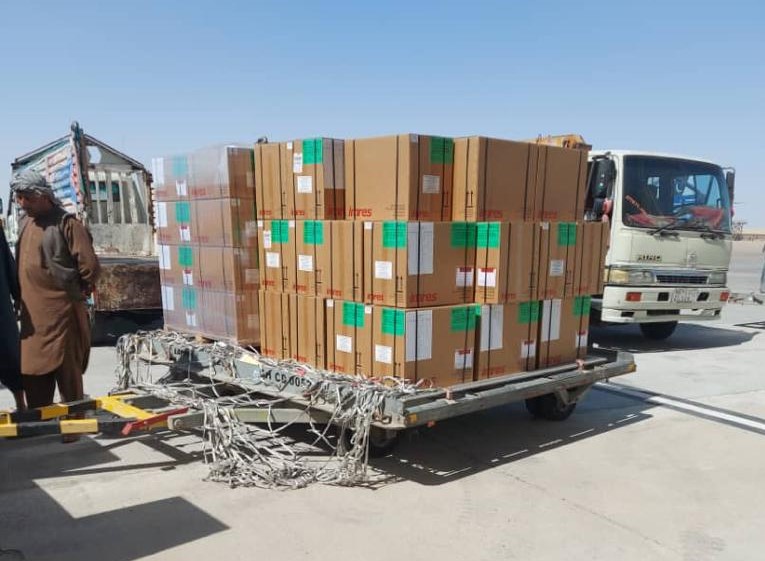An aircraft carrying around 23 metric tonnes of life-saving medicines and supplies from WHO landed in Kabul today at 13:30 local time.
The shipment, which is among the first humanitarian aid to arrive at Kabul airport since operations were disrupted on 15 August, was flown by a Qatar Airways flight donated by the Government of the State of Qatar.
“As health needs increase in Afghanistan, we must move quickly to address the shortages in medical supplies to keep life-saving health services running. I thank the Government of the State of Qatar for its generous and timely support, which has allowed WHO to replenish depleted stocks and meet the needs of the most vulnerable Afghans,” said Dr Tedros Adhanom Ghebreyesus, Director-General of the World Health Organization.
A second flight donated by the State of Qatar is expected to arrive later this week, carrying more WHO medical supplies.
Together, the 2 shipments which contain essential medicines such as insulin, medical consumables, trauma and surgery kits, and COVID-19 testing kits, will address the urgent health needs of 1.45 million people and provide for 5400 major and minor surgeries. They will be distributed to 280 health facilities and 31 public COVID-19 laboratories across Afghanistan.
The supplies have been shipped from WHO suppliers’ facilities in Europe to Qatar and onward to Kabul, Afghanistan, in collaboration with the operations and logistic teams of Qatar Airways and the Government of the State of Qatar.
WHO is exploring options to expedite further shipments of health supplies to Afghanistan.
The establishment of a reliable humanitarian airbridge continues to be a pressing need to ensure timely movement of humanitarian aid and personnel to respond to the evolving situation.
WHO is committed to staying and delivering. The 2 flights from Qatar will mean that WHO will have airlifted 131 metric tonnes of supplies since 30 August, which are enough to cover the urgent health needs of 2.43 million people and provide for around 19 000 major and minor surgeries.


































































